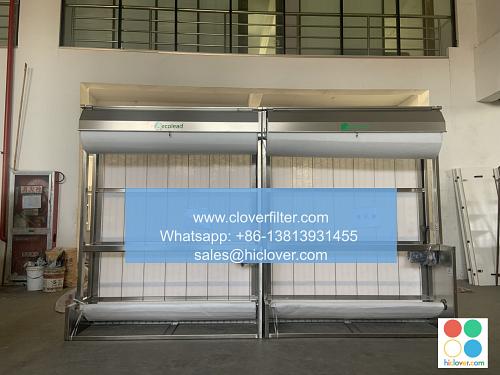Air Filter Technology: A Review of Environmental Impact

Air filter technology has become an essential component in maintaining indoor air quality, reducing pollution, and mitigating the effects of climate change. The environmental impact of air filter technology is a critical aspect that needs to be evaluated, considering its widespread application in heating, ventilation, and air conditioning (HVAC) systems, air purification systems, and industrial processes. This article provides an overview of the current state of air filter technology, its environmental benefits, and challenges, as well as its applications in various industries.
Introduction to Air Filter Technology
Air filters are designed to remove particulate matter (PM), gases, and volatile organic compounds (VOCs) from the air, improving indoor air quality and reducing the negative impacts on human health and the environment. The technology has evolved significantly over the years, with advancements in nanofiltration, ultrafiltration, and activated carbon filtration. These developments have enabled the creation of more efficient and effective air filters that can capture a wide range of pollutants.
Environmental Benefits of Air Filter Technology
The environmental benefits of air filter technology are numerous and well-documented. Some of the key advantages include:
* Reduction of greenhouse gas emissions by minimizing the energy required for heating and cooling
* Removal of hazardous air pollutants such as particulate matter, ozone, and nitrogen dioxide
* Improvement of indoor air quality by eliminating VOCs, bacteria, and viruses
* Decrease in waste generation by using reusable and recyclable air filters
Application Areas of Air Filter Technology
Air filter technology has a wide range of applications across various industries, including:
* Commercial HVAC systems to improve indoor air quality and reduce energy consumption
* Industrial processes such as manufacturing, oil and gas, and chemical processing
* Transportation systems including automotive, aerospace, and marine
* Healthcare facilities to prevent the spread of infections and improve patient outcomes
* Residential buildings to enhance indoor air quality and comfort
Challenges and Future Directions
Despite the numerous benefits of air filter technology, there are still several challenges that need to be addressed. These include:
* High upfront costs associated with the installation and maintenance of air filter systems
* Limited durability of air filters, leading to frequent replacements and waste generation
* Inadequate standards and regulations governing the use and disposal of air filters
* Need for innovative materials and designs to improve the efficiency and effectiveness of air filters
Conclusion
In conclusion, air filter technology has a significant impact on the environment, with numerous benefits and challenges. As the technology continues to evolve, it is essential to address the existing challenges and develop innovative solutions to improve the efficiency, effectiveness, and sustainability of air filter systems. By highlighting the various application areas and environmental benefits of air filter technology, we can work towards creating a cleaner, healthier, and more sustainable environment for future generations. Sustainable air filtration is a critical component of this effort, and ongoing research and development are necessary to ensure that air filter technology continues to play a vital role in mitigating the effects of climate change and improving indoor air quality. Prompt

